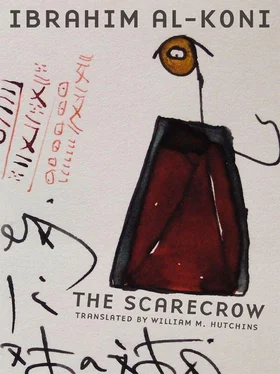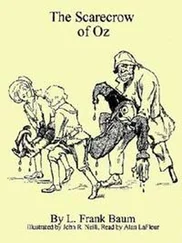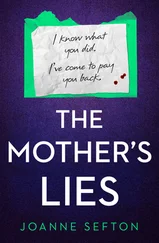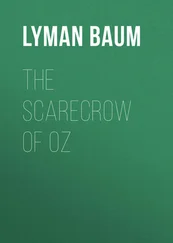But this alleged kohl blinded him instead of healing his sight.
In spite of this affliction, the hero was the only creature destined to attend the last meeting of the Council of Nobles inside the temple that day and then also to hear the herald cry as he toured the oasis the next morning: “The soul is slain only by what it desires, and man is destroyed only by what he craves.”
1
Everyone finally concurred with what the elders and sages had once said — that the disappearance of justice was preordained for life in oases. These men seemed the only faction who thought they had a right to express an opinion about life in the oasis, because they had lived another life in the wasteland before time frowned on them and forced them to settle. Then they had found themselves held hostage by enclosures, buildings, and rows of stones.
The generations who were reared within the ramparts were astonished to observe wise men tremble and shed tears when the saga of the desert flowed from tongues. These youngsters did not understand the adults’ secret. So they would run after them to ask, “If abandoning the desert is this painful, why don’t you return?” But these afflicted people found no answer for the question, because they themselves did not know what bound them to an earth that denied and rejected them, that made them feel they were strangers and enemies while their beloved wilderness stretched before them with all its nobility, discretion, pride, submission, affection, nonchalance, and charm. They had never discovered its secret or found anything comparable to its beauty and magic or even any explanation for these qualities. So why didn’t they rush off? Why didn’t they go to embrace the paradise that awaited them beyond the city walls? Why didn’t they pass through the city gates and cast themselves into the labyrinth of the homeland of longing?
But … how absurd!
How absurd! People who had settled in the oasis knew from experience that the oasis is a siren more captivating than women singers famed for their beauty, more magical than the desert from which the arts of magic are derived, and a stronger sovereign than the most recalcitrant sultans, because it holds in its hand an indomitable weapon called “seduction.”
The oasis is not content merely to entice the wretched wayfarer who has lost his way. It is not satisfied with tempting thirsty people who will perish if they do not drink from its dread deluge. It also twists around the neck of anyone alighting there the lasso of a seduction that cannot be resisted or overcome, even when the forty-night period specified by the forefathers in the Law has elapsed. The traveler relinquishes his travel plans, and the wayfarer finds himself shackled by a chain a thousand cubits long. Then he despairs and hunkers down to the earth, even while suffering from remorse and weeping for the rest of his life. He does not merely weep for his loss. He does not merely weep because of his grievous sense of the treachery of the age and his abandonment of traveling, searching, and looking for the lost longing. He weeps because he has discovered the loss of the wager and the worthlessness of the swap that moved him to sell the red-hot firebrand, a firebrand from an eternal fire, to acquire humiliation from earth he thought that he owned, whereas it owned him. It not only owned him; it slew him. If it had not slain him in the vilest possible fashion, how then could he see injustice and keep quiet about it? If it had not slain him, how could he watch the masters of the earth tighten their stranglehold around the necks of the innocent and say nothing? If it had not truly slain him, how could he be content to see the powerful continue to extend their control over his neck with taxes when he tilled the earth of the fields, went to the metalsmiths’ market to forge metals, or sought to support his offspring through any other profession?
Clever technocrats said the destiny of the oases was not simply the disappearance of justice or the acceptance of humiliation, but also tyranny.
“Tyranny is the poison swallowed by everyone who finds himself held hostage by the oasis,” wily strategists added.
2
The head of state told the people that if he could not bring the desert to the desert lovers, he could return to the hearts of these wretches the treasure they had lost the day they lost the desert: justice.
Then he asked forthrightly whether the noblemen of the oasis had inherited their fortunes from their ancestors. With a shout like an earthquake the throng responded, “No!” Then the cunning tactician asked in the same crafty language, “Did the landlords inherit their fields from their fathers?” The corners of the oasis rocked with, “No!” Then the governor started to pepper the crowd with provocative questions that had found their way into every mind but that had never previously been voiced by anyone. “Did the wealthy emerge from their mothers’ bellies as merchants and men of property?” The walls of the oasis were shaken again by “No!” The mysterious man did not pause to take a breath or to give the throng time to reflect. Instead he concluded with the zeal of someone who had long planned his offensive: “Did the lords acquire from the Spirit World a wisdom like the sagacity that tribes recognized in their leaders, thus entitling them to rule over innocents and wretches?” The area was convulsed with a “no” stronger than all the previous ones. A tumult succeeded the convulsion. Vigorous activity among the riffraff followed the hubbub. A call followed this activity. The voice of the sorcerer, however, stopped them with a more powerful call: “Is it just for people who yesterday were free men to be enslaved by what calamitous gold dust buys or by possessions acquired through clever dodges, deceit, or lies?”
A ghoul awoke in the souls of the crowds, and a demonic afreet fidgeted in the flask as it prepared to escape from its ancient cell. People shouldered each other aside and surged through the streets, alleys, and plazas. They broke into the merchants’ dwellings, wrecked the doors of shops, plundered the caravan markets, seized grain and dates stored in mattamores in the fields, snatched from each other the gold jewelry they found in gentlemen’s dwellings, and dug up the yards of houses in search of pieces of gold and silver coins. Many went so mad that they stripped the noblemen’s wives of their jewelry and pulled the earrings from their ears.
The oasis experienced such chaos that the sages referred to it as an earthquake, because reliable sources had mentioned nothing like it in the history of the oases.
3
It had never crossed anyone’s mind that taxes were sacred until the ruler of the oasis circulated his new edicts. In previous ages, people had thought taxes were an ignoble innovation concocted by heads of state and the ruling elite to ruin the affluent and to devastate the poor and people with meager incomes in order to satisfy their own greed for luxuries. Citizens began to rise respectfully when they heard the word “taxes,” however, after the cunning ruler made scoffing at taxes, tax evasion, or tax fraud into capital offenses. This punishment astonished people, because they had never previously encountered this penalty in the laws of the oasis, of the desert, of neighboring tribes, or even in the legal codes of any of the other oases scattered through the desert, where it was considered an ancient certitude inherited from the laws of the first peoples that banishment is the harshest punishment — harsher even than death.
The cruel penalty in the new legal code was accompanied by a decrease in taxes for farmers, artisans, and anyone else with a limited income. To offset the losses resulting from this tax cut, duties and taxes were increased on caravan merchants in transit, wealthy people in the oasis, landowners, and goldsmiths who melted down gold dust, minted coins, and turned the metal into jewelry and decorative items. People wanting to acquire gold dust also found in the new constitution a clear text sanctioning transactions with this metal and therefore viewed the day it was promulgated as a beginning that would free their hands — which had been restrained from such transactions by the ancient Law the ancestors had bequeathed to their heirs in other times when people had different characters, souls, appetites, and goals.
Читать дальше












